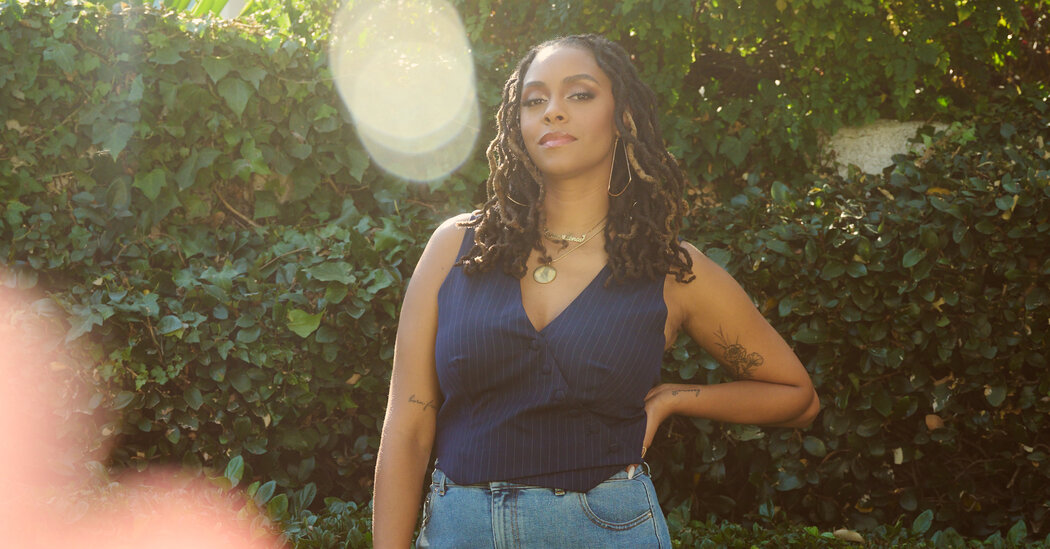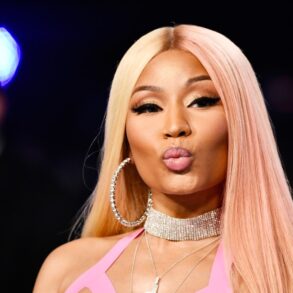
Syreeta Singleton, the showrunner of the Max sitcom “Rap Sh!t,” discusses why the show’s aspiring rap stars are going on tour in the new season.
When “Rap Sh!t” premiered in July 2022, the sitcom embraced Miami’s Black cultural landscape, as well as the recent female MC renaissance, with a rags-to-slightly-nicer-rags tale of two locals chasing a hip-hop dream.
Shawna, a disillusioned hotel clerk played by Aida Osman, and Mia, a struggling single mother played by the Florida rapper KaMillion, are two mismatched former classmates who stumble into the spotlight when their cobbled-together demo goes viral with the help of their scrappy manager, Chastity (Jonica Booth).
Created and executive produced by Issa Rae and loosely inspired by the lives of the Miami rap duo City Girls (who serve as executive producers), the series is filled with check-chasing raw ambition, sex-positive exploits and social-media fixation.
When last we saw them, Mia was finally ready to ditch her makeup-artist and OnlyFans side gigs to fully commit to the rap game, while Shawna’s botched credit-card-scamming spree had her running from the law (literally, and in heels).
In Season 2, premiering Thursday on Max, the group hits the road for an ego-puncturing, relationship-testing quest for a bigger platform. While embarking on their first-ever tour — reluctantly backing the oblivious white rapper Reina Reign (Kat Cunning) — they endure a barrage of indignities including cultural appropriation, misogyny, zero-star accommodations and music industry bamboozlement.
According to the showrunner, Syreeta Singleton, who also wrote the season premiere, the story arc stemmed from anecdotes shared by Chris Sanford, one of the show’s writers, who once worked as a tour manager.
“He had so many stories about getting an up-close look of how artists deal with the stress of being on tour buses for months at a time and what happens backstage,” said Singleton, who had previously worked with Rae as an “Insecure” story editor. “Those stories were so exciting, but we couldn’t use them in Season 1 because the girls were literally starting at the bottom and trying to figure out how to be a group.”
Unlike Season 1, which was filmed on location in Miami, this season was largely shot in and around the Sony studio lot in Los Angeles-adjacent Culver City during the winter of 2023. The venue swap was a budgetary decision, Singleton said. The native Angeleno said she was serious about accurately replicating the Magic City on her home turf.
“I’d be like, ‘Miami doesn’t have those trees! Miami would never have that curb!,’” she said. “I think I was really annoying at a certain point. Not only do I care as a storyteller about getting it right, I love that city.”
While sipping an almond macadamia latte outside a Downtown Los Angeles coffee shop, Singleton discussed the season’s “all that glitters” allegory. These are edited excerpts from the conversation.
If Season 1 was rooted in authentically representing Miami culture, what was the focus this time around?
One of the things for the characters is that the [touring] environment really tests their sense of self — who they are, what they’re willing to do, how far they want to go. You’re close to the thing that you want, you can see it in front of you, but you’re not quite there yet. It’s watching how much they’re willing to compromise for this goal, which I think is relevant for Shawna, Mia and Chastity. But Shawna, especially. We saw her start off as this person who was like, “I don’t even want people to look at me. It’s only about the statement that I’m making, and it’s political and I want to rile people up and get them to pay attention to these issues.” But with the desire to make it, now she’s slowly letting that go and no longer standing up for that.
If you tell someone, “I’m going on tour,” there’s what that looks like on social media — how many likes you can get because people are now all of a sudden paying attention to you — then there’s what that actually looks like. Mia’s stomach is growling. Shawna doesn’t have tampons. That’s what people don’t see. The music industry is at a really interesting place right now because it really does feel like it’s social-media driven, and you gotta fake it ’til you make it.
Did the touring narrative make this season more challenging to shoot?
Season 1 was written before shooting; this time, there was overlap. Everything was happening at once and everything was happening here in Los Angeles. We’re “on the road,” but we recreated Portland and Oakland. I really felt like I was pulled in so many directions — scouting locations, going into the writers’ room to work on Episode 6, then going back on set and shooting Episode 2. After last season I was like, “I got this under my belt, I’m gonna go into Season 2 so much more confident!” But then the universe was like, “OK, you accomplished that level, now do it in L.A., fake Miami, fake all of these different cities, do it all at once and do it in the freezing cold because it’s January.”
What is your work dynamic with Issa like?
I’m there for the day-to-day and I run the writers’ room. How we work varies depending on what’s on her plate, because Issa’s everywhere. She looks over outlines and drafts and gives notes like all of the other producers, but she gets her eyes on it first. We have the closest communication when it comes to talking about the characters, where we want to go and the stories we want to tell — so we’re partners in that way. She’s a super hands-on producer, and obviously this is her baby.
Have you adopted the baby? Do you consider it yours, too?
I’ve adopted the baby. I feel like I’m the baby’s mom and she’s my baby-daddy. She’s a really good father but, you know, she has other kids!
Did any scenes this season particularly move you?
Mia’s stuff with her mom and her own daughter — the motherhood stuff really hits home for me, especially when it comes to sacrificing and leaving your kid behind to pursue a dream. Mia and I have that in common. My kids came with me to Miami, but then they had to go back and I was away from them or flying back and forth for three to four months. That was really hard for me. It’s like, “Am I doing the right thing? Am I making the right choices? Are they going to be better because of this?”
Shawna and Mia emphasize women’s sexual freedom in their lyrics and their private lives. Was that always part of the vision for the show, to depict them walking the walk, so to speak?
Yes. Issa and I, we’re fans of female hip-hop. What do you feel when you’re listening to a Cardi B or Megan Thee Stallion song? There’s a lot of boasting; it’s braggadocious. I’m listening to it when I’m going to work to try to pump myself up. When I’m at the gym, it’s making me run that extra mile. These women are living a lifestyle of full empowerment. You can feel it in the music and that’s what makes us feel good. I wanted to accurately represent the power that you feel when you’re listening to that sort of music and the power that you imagine those women feel when they are being sexual and speaking about their sexuality without fear.
One [social media] comment I got that stuck with me was someone feeling like [the show’s sexuality] was too much and that it’s not good to represent Black women in this way. And I was like, “Am I doing us a disservice?” Then I was like, “Wait, who says we don’t get to be sexual?” We’re all human and that’s a shared experience that most of us have. We are sexual beings, so I never want to shy away from that.
Did you get any feedback from female rappers after the first season? Anyone saying, “That is exactly how it is” or “You should’ve done this”?
No, not really. [The Florida-born rapper] TT the Artist did say some amazing things. I would love to hear from more female rappers. What I have heard — from mostly men — is that [the show] is so real, the not getting paid when you do work or having someone take the thing you did and not give you credit for it. Those are the things I hear a lot, so I feel like we’re nailing the struggle!
This post was originally published on this site be sure to check out more of their content.


